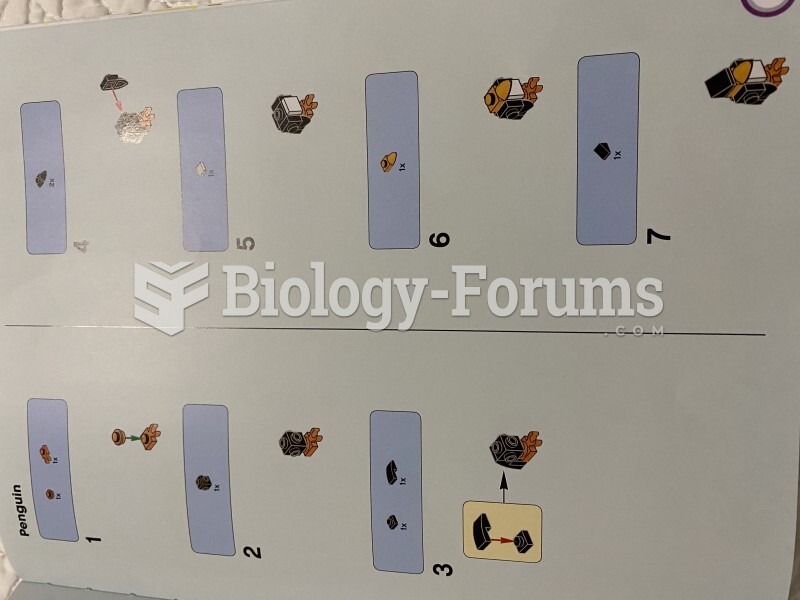|
|
|
Many supplement containers do not even contain what their labels say. There are many documented reports of products containing much less, or more, that what is listed on their labels. They may also contain undisclosed prescription drugs and even contaminants.
Chronic marijuana use can damage the white blood cells and reduce the immune system's ability to respond to disease by as much as 40%. Without a strong immune system, the body is vulnerable to all kinds of degenerative and infectious diseases.
People with high total cholesterol have about two times the risk for heart disease as people with ideal levels.
Drying your hands with a paper towel will reduce the bacterial count on your hands by 45–60%.
More than nineteen million Americans carry the factor V gene that causes blood clots, pulmonary embolism, and heart disease.







